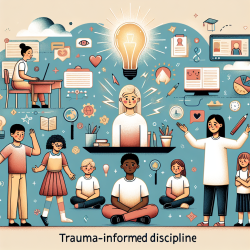Key Findings from the Study
The study identified 10 critical elements that contribute to the success of digital mental health services:- Flexible Delivery and Timely Response: Online services offer flexible scheduling and faster access to care.
- Personalized Care: Tailored content and individualized approaches meet the unique needs of each child.
- Comprehensive Care: Multiple interconnected services provide holistic support.
- Effective Client Engagement: Strong therapeutic alliances are formed through effective engagement strategies.
- Use of Multiple Communication Tools: Various digital tools enhance interaction and engagement.
- Client Satisfaction: High levels of satisfaction are reported by both children and their families.
- Good Clinical Outcomes: Positive clinical outcomes are achieved through effective digital interventions.
- Ease of Family Involvement: Families can easily participate in sessions, regardless of location.
- Facilitation of Multi-Agency Working: Seamless integration with other services ensures comprehensive care.
- Management of Risk and Safeguarding: Effective protocols are in place to manage risk and ensure safety.
Actionable Steps for Practitioners
Based on these findings, practitioners can take several steps to enhance their practice:
- Embrace Flexibility: Offer flexible scheduling options to accommodate families' needs.
- Personalize Care: Tailor your approach to meet the individual needs of each child.
- Leverage Technology: Use multiple digital tools to enhance engagement and interaction.
- Involve Families: Encourage family participation to provide holistic support.
- Collaborate with Other Services: Work closely with other agencies to ensure comprehensive care.
- Monitor Outcomes: Regularly assess clinical outcomes to ensure effective interventions.
Encouraging Further Research
While this study provides valuable insights, further research is essential to continue improving digital mental health services. Practitioners are encouraged to stay informed about the latest research and integrate new findings into their practice.
To read the original research paper, please follow this link: Digital Mental Health and Neurodevelopmental Services: Case-Based Realist Evaluation










